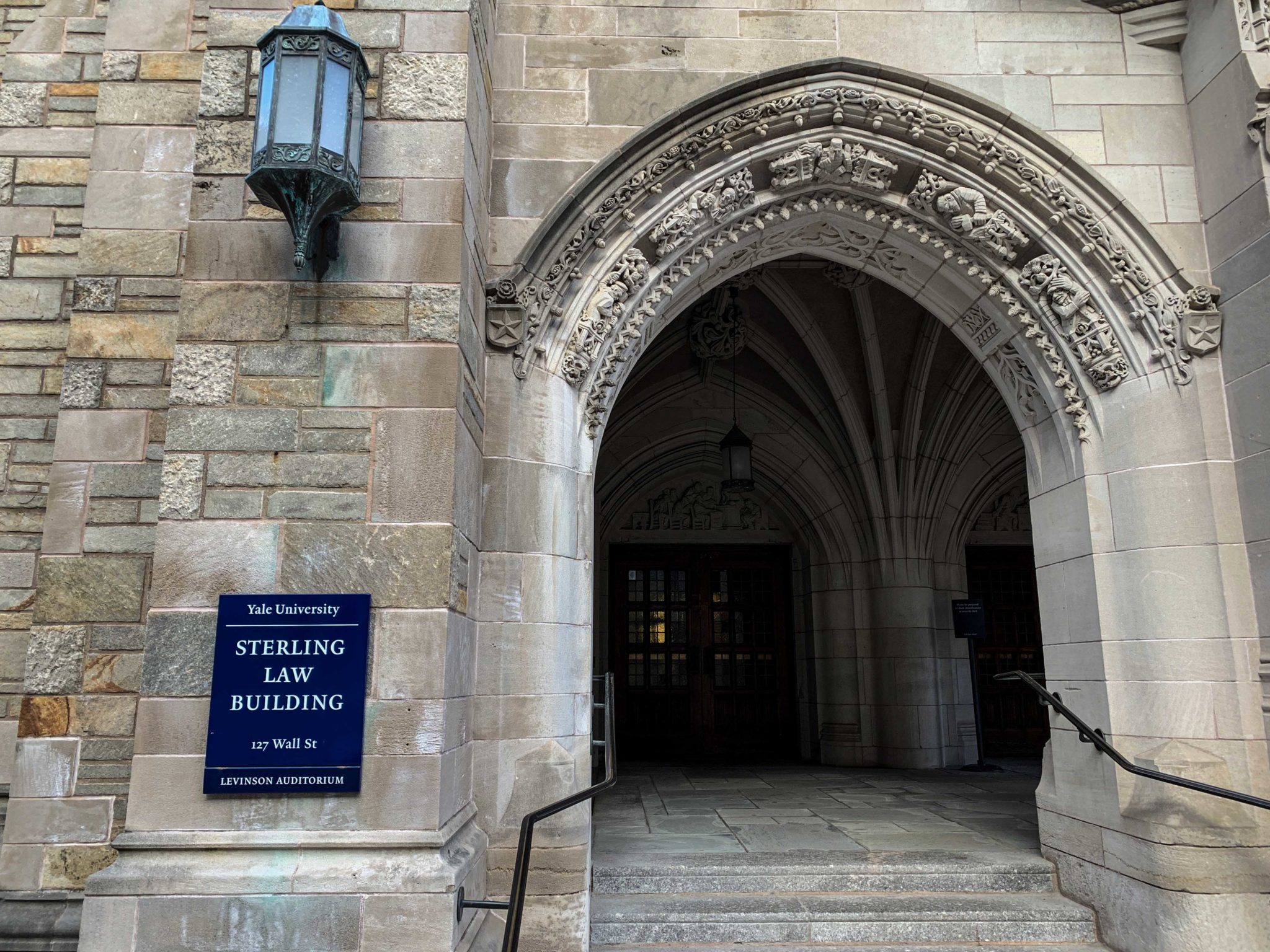YLS students call on Biden to revise policy to help climate-displaced migrants
Students and legal experts released a 90-page report proposing legislation to support Central American migrants who were displaced due to climate change.

Ling Gao, Staff Photographer
Last week, a group of law students from Yale Law School helped publish a 90-page report calling for the Biden administration to address migration and displacement in Central America as a result of climate change.
The students worked alongside other students and legal experts from Harvard Law School and the University Network for Human Rights throughout the fall. Following months of research, their recent report — released on Earth Day — examines the migration of residents of the Northern Triangle, an area composed of El Salvador, Guatemala and Honduras. The report analyzes the impacts of climate change on migration, as well as the relationship between climate change and current and future migration flows. It proposes seven legislative measures that will ensure greater protection for climate-displaced migrants.
“What this report is trying to do is to understand how those two issues, climate change and immigration, interact and how they do so in the Northern Triangle,” Camila Bustos LAW ’21 said. “We know that climate change is happening. We know its effects are already being felt … in Central America. What we did was research into what climate science tells us and how that is going to impact migration from the Northern Triangle.”
Alisa White LAW ’22 ENV ’23 told the News that legal expertise is relevant when creating new legislation to help migrants, as well as when thinking about ways to interpret existing laws so that they better protect climate-displaced people.
She pointed to the Temporary Protected Status Program, which gives migrants from certain countries affected by natural disaster or armed conflict the ability to live and work in the United States for limited amounts of time. Migrants from Haiti, El Salvador, Honduras, Nicaragua and Venezuela, among other countries, currently have temporary protected status under the program.
“You also have the element of the history and the relationship between the laws and executive policies that were made with respect to Central America, and the role that the U.S. has played in that region, specifically addressing how the United States has contributed to destabilization of the region, as well as the United States’ role in driving climate change, which has made conditions really difficult,” White said.
Bustos similarly said that the United States owes a “moral and ecological debt” to Central America.
The report outlines seven major recommendations to address the climate displacement crisis. It calls on Biden to include slow-onset weather events — such as coastal erosion — in the definition of an environmental crisis, expand temporary emergency programs for climate-displaced foreigners and create a new “climate visa” for Central Americans that offers a path to permanent residency.
In addition, the report recommends incorporating climate change into the existing framework for refugee asylum. It also advocates for increased funding for research on climate migration from countries in the Northern Triangle.
“Experts project that by 2050, climate change will displace nearly four million people across Mexico and Central America,” Harvard Law School professor Deborah Anker wrote in an April 22 press release about the report. “We cannot wait another twenty-five years to address these issues. The Biden administration must reform our immigration infrastructure now.”
The report explains that the main drivers of climate displacement include food insecurity, recurring droughts, declining agricultural production and water scarcity. Changes in the climate system create significant economic losses for small farmers, particularly those who produce coffee, corn or beans. In addition, soil degradation and rising sea levels are other major reasons why people are forced to move as a result of climate change.
Even if the report’s recommendations go into effect, Bustos emphasized that the Biden administration will be unable to fully combat the effects of climate change and displacement since they are already occurring.
“The fact that the Biden administration has shown that it is willing to act on climate is good news, but even if we mitigate as much as we can, there’s already a level of warming that we’ve locked ourselves in because of past emissions,” Bustos said. “The impacts of that are already being felt, so droughts are longer than usual and hurricanes are more frequent.”
The Yale Immigrant Justice Project and the Yale Environmental Law Association are two of the groups that contributed to the report.









